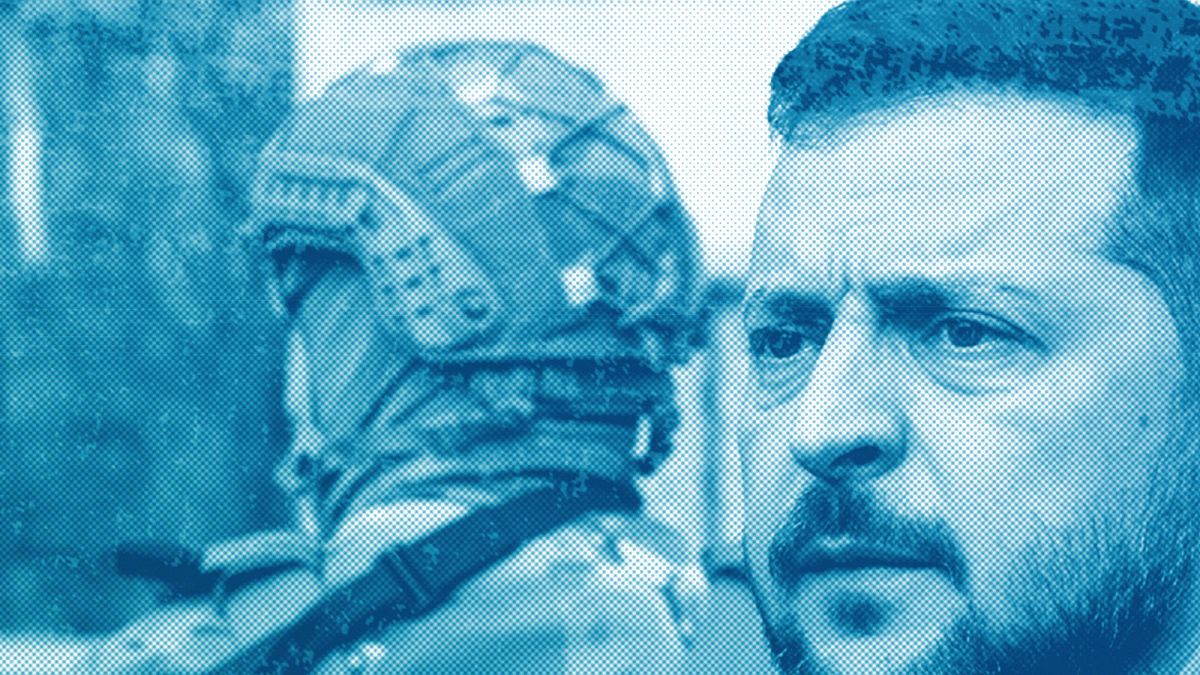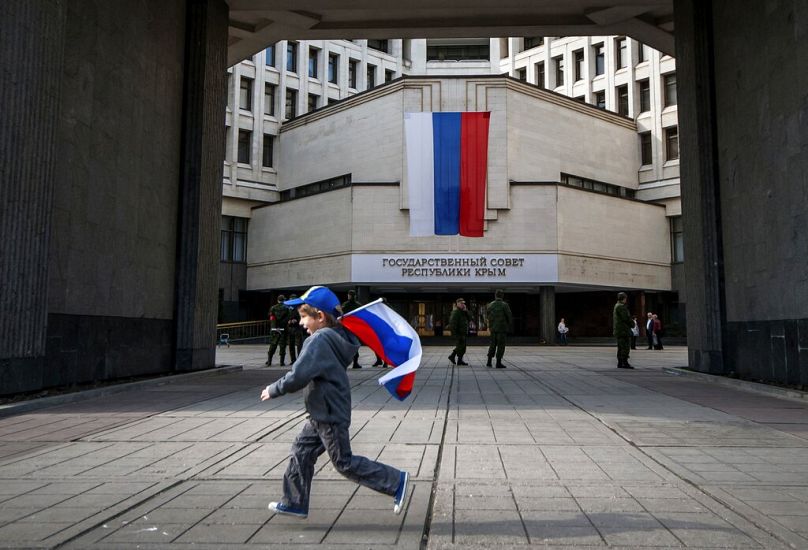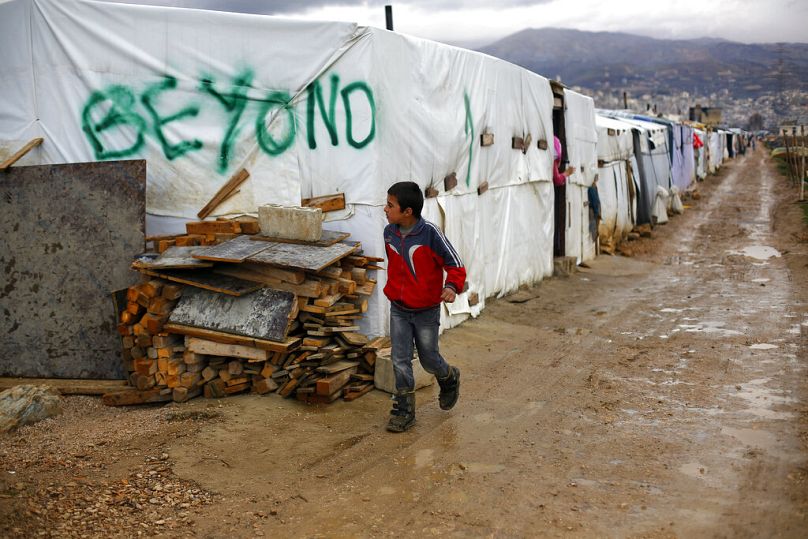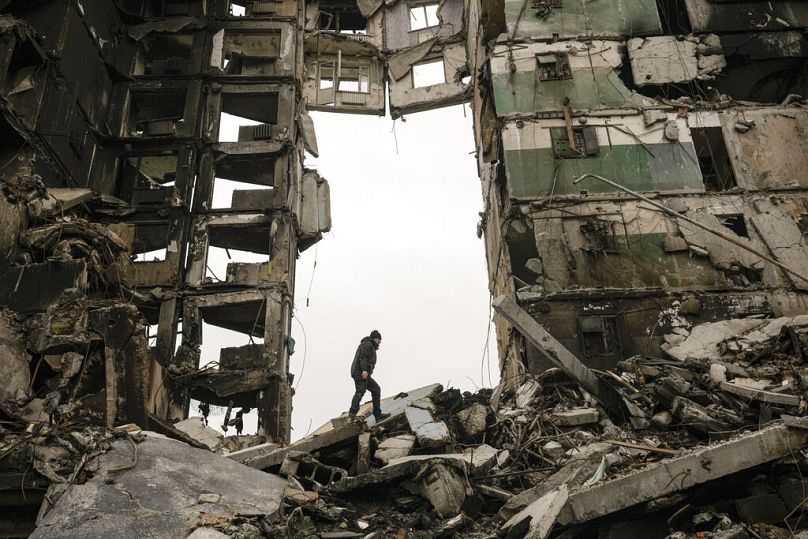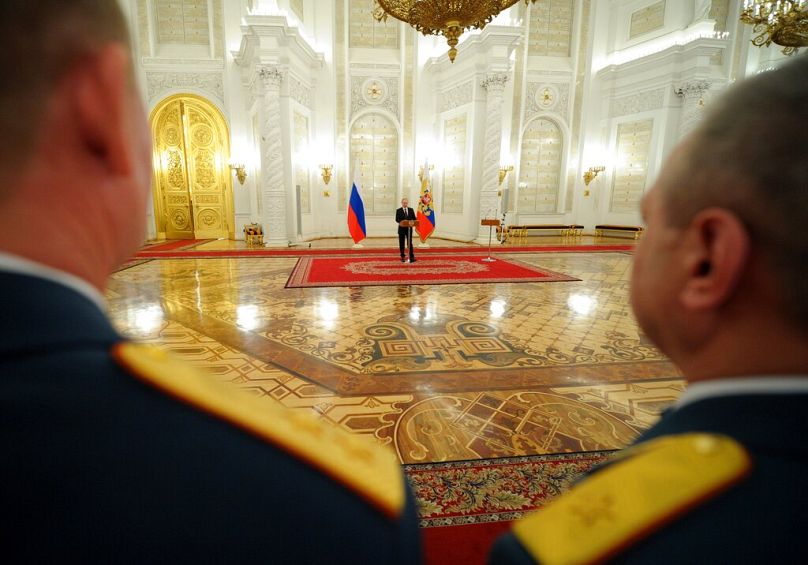Moscow has openly said that it is waiting for Ukraine fatigue — a sense of detachment caused by existential fear — to set in during its war of attrition. This is a crucial strand of its propaganda tactics, Nina Jankowicz and Tom Southern write.
Anyone who has been following the Russian invasion of Ukraine since February 2022 has likely experienced the symptoms for themselves.
The underlying thrum of anxiety, accompanied by shattered complacency over the future of a safe and secure Europe.
The fear can often feel existential, exacerbated by a flood of news reports detailing terrible atrocities. Until one day, it all becomes too much, and a sense of detachment sets in.
These are the symptoms of "Ukraine fatigue", a phenomenon acknowledged not only by outside observers of the war but even by combatants themselves. Russia has openly noted that it is waiting for Ukraine fatigue to set in during its war of attrition.
Moscow exploited superficial understanding of context while occupying Crimea
The negative implications for Ukraine would have been clear enough to President Volodymyr Zelenskyy; the worry that Western attention would run out before the ammunition did.
This psychological detachment is a well-established form of self-protection, our brain’s way of shielding itself against a relentless stream of horror stories.
However, it is also a tactic that the Kremlin is all too happy to exploit, and has exploited previously.
With the invasion of Crimea in 2014, fatigue set in quickly, and likely contributed to a sense of complacency in the Kremlin.
The West lacked affinity and anything beyond a superficial understanding of the Crimean peninsula and its internal politics and allegiances.
Russia took advantage of this ignorance when executing its illegal annexation of the region, and the reaction from Europe was relatively subdued.
Resentment over Syrian refugees was Kremlin-induced
Moscow applied a similar strategy with adapted tactics during the Syrian civil war, starting a year after Crimea.
The Kremlin successfully stoked resentment and fear over the imminent influx of thousands, if not millions, of Syrian refugees.
As the long and far-off conflict wore on, even the most well-intentioned observers began to suffer from compassion fatigue. It left space for Russian disinformation to supplant the truth.
A counter-narrative emerged one which overlooked Russia’s indiscriminate targeting of Syrian civilians in favour of hostility towards the US for its clumsy handling of the conflict and the Syrian refugees who risked their lives to flee for safer shores.
Ukraine fatigue has so far failed to take hold as effectively as it did in Syria and Crimea, but it is gaining traction.
Russia's 'winter disinformation offensive' is rife with malign methods
With the rapid-fire nature of 24/7 news alerts and proliferation of social media networks, Russia’s ability to flood the information sphere with news is more effective than ever before.
While the Russian military is ground to a halt on the battlefield, Russia remains a real and present threat in the field of information warfare. Kremlin narratives can be disseminated across the world, reaching every region and every language with a single click.
At the Centre for Information Resilience (CIR), a UK-based non-profit, our research has led us to conclude that this is a crucial strand of Russia’s war; a "winter offensive" that employs Ukraine fatigue to wear down populations and politicians to the point where they no longer feel it is in their interests to offer Ukraine their material or financial support.
Such support has proved crucial for Ukraine to sustain its survival.
Notable Russian disinformation strands analysed by CIR include refugee resentment — as in Syria — and allegations of corruption in Ukraine’s government.
Conspiratorial allegations about NATO actions seep through social media networks, as do criticisms of hypocrisy and whataboutism in relation to perceived crimes committed by the US and other Western countries.
Other attempts to propagate Ukraine fatigue include lowest-common-denominator appeals to the wallet, employing factors such as skyrocketing energy bills and the cost of living crisis as a pretext to end Western support of Kyiv.
Extremes on right and left frequently spread this disinformation. It also crucially finds traction in non-English speaking countries, facilitated by the increasingly easy access to new audiences via the internet.
Messaging war is not lost as long as we maintain empathy
The impact of Ukraine fatigue is recognised and has been discussed since the early days of the invasion, but there has been little thought given to how to mitigate its effects.
It is essential that Western authorities confront Ukraine fatigue head-on, maintaining empathy for the Ukrainian cause and rightly laying blame for the energy crisis at Russia’s door.
Communications campaigns must consider the Global South, where Russian disinformation often finds greater success, especially when aimed at discrediting major Western powers.
It’s important to remember that Russia made assumptions early on that Ukraine fatigue would take hold quickly.
Those assumptions have proven untrue. The messaging war is not lost, but allied nations must be quick to seize the initiative.
Nina Jankowicz is the Vice President, US, at the Centre for Information Resilience (CIR) and the author of two books, including How to Lose the Information War: Russia, Fake News, and the Future of Conflict. Tom Southern is the Director for Special Projects at the Centre for Information Resilience, where he focuses on hostile state influence, counter-extremism and emergent digital cultures.
At Euronews, we believe all views matter. Contact us at view@euronews.com to send pitches or submissions and be part of the conversation.
